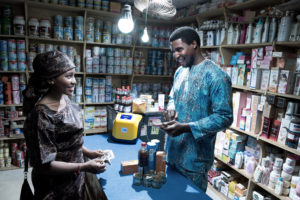
December 22, 2017//-Every organisation wants to be sustainable. It sounds good and achieving ‘sustainability’ is popular from the boardroom to the customer. However, says Courtney Fingar, rather than simply plastering the word all over glossy brochures, governments and investors must work out what their version of sustainability actually means.
‘Sustainability’ is one of those words that is in danger of being over-used to the point of becoming meaningless (which ironically threatens how sustainable it is as a term).
Every company, every product, every place, it seems, wants to be sustainable. All very well and good in theory – it certainly beats being unsustainable – but what does it mean in practice? In literal terms, sustainability means simply the ability to be maintained at a certain rate or level: a noble goal but not always a realistic one. Nothing can stay at exactly the same level forever.
Most people use the word as a catch-all for anything that is remotely environmentally friendly, but that’s deceiving: not everything that is green is sustainable and not everything that is sustainable is green.
But there are tangible, clearer meanings that can be applied to the word. It doesn’t have to be so vague. For organisations and locations that want to pursue sustainability, the first step should be to avoid throwing the word around until they have ascertained what it means to them, why they want it, and what in their view sustainability would look like. In other words, what’s the end goal? Is it just being able to stamp the word ‘sustainable’ all over its products and brochures? Or is it in aid of a bigger, more effective long-term result? What metrics can be used to measure success? And what, if any, enforcement tools will be used?
These are questions tourism destinations need to face as the sustainability drive reaches this sector just as enthusiastically as others. In this, the Year of Sustainable Tourism, as decreed by the UN World Tourism Organization, there is a pressure to emphasise only ‘sustainable’ tourism projects and initiatives.
Again, it is worth considering what this actually means. There’s no sense espousing a goal, however worthy, without thinking through the practicalities and ramifications and deciding where it’s all going. Before boarding a plane, it is usually a good idea to know where you plan to land.
Courtney Fingar is editor-in-chief of fDi Magazine. Email: courtney.fingar@ft.com
This article is sourced from fDi Magazine


